Search Images
Browse Content (p. 1248)
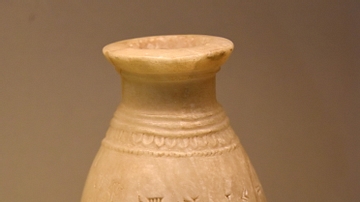
Image
Alabaster Jar of Sargon II
The cuneiform inscription on this alabaster vessel mentions that it belongs to king Sargon II. Neo-Assyrian Period, reign of Sargon II, 721-705 BCE. From the North-West Palace at Nimrud, Northern Mesopotamia, modern-day Iraq. (British Museum...
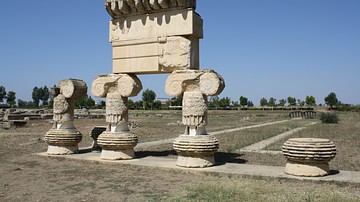
Image
Ionic Temple, Metapontum
Ionic capitals and architrave from a temple of unknown dedication at Metapontum, Magna Graecia, southern Italy. 480-470 BCE.
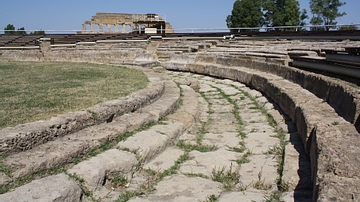
Image
Theatre, Metapontum
The mid-4th century BCE theatre at Metapontum, Magna Graecia, southern Italy.
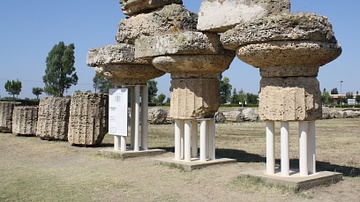
Image
Temple of Hera, Metapontum
The Doric Temple of Hera at Metapontum, Magna Graecia, southern Italy. 570-530 BCE. Originally, the temple had 8x17 columns.
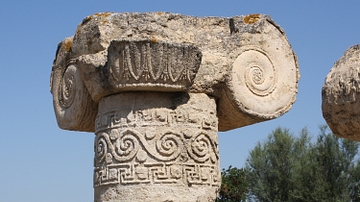
Image
Ionic Capital, Metapontum
An Ionic capital from a temple of unknown dedication at Metapontum, Magna Graecia, southern Italy. 480-470 BCE.
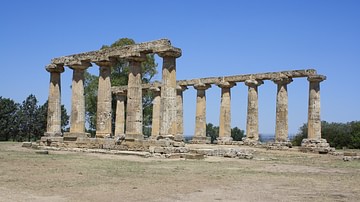
Image
Temple of Hera, near Metapontum
The Doric Temple of Hera, near Metapontum, southern Italy. 6th century BCE. Originally with 6x12 columns and part of a wider sanctuary to Hera, the Palatine Tables.
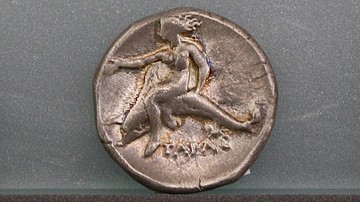
Image
Silver Stater of Tarentum
Silver stater coin of Tarentum (modern Taranto), a Greek colony in southern Italy founded by Sparta. Taras riding a dolphin. 5th century BCE. (Archaeological Museum of Altamura, Italy)
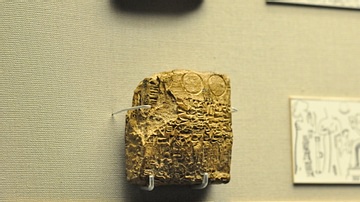
Image
Unopened Clay Tablet Envelope from Kultepe
The cuneiform text on the center of this unopened envelop narrates a loan of silver to a husband and wife. The envelop is marked by rings and cylinder seals used by the diverse community at the city of Kultepe. There are 3 scenes; Babylonian...
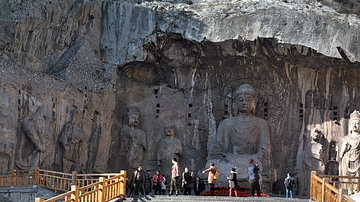
Image
Longmen Grottoes - Fengxiansi Cave
The most magnificent Tang era grotto at Longmen Grottoes, Henan Province, China. 675 CE.
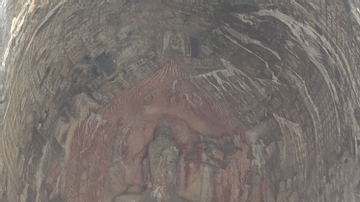
Image
Longmen Grottoes - Guyang Cave
The Guyang Cave, oldest grotto at Longmen Grottoes, Henan province, China. 493 CE.